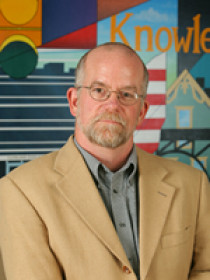Connect with William
About William
Bowen's research focuses on research-based decision-making and problem solving in regional analysis and planning. Overarching themes in his writings include economic development, energy policy, and environmental issues. When he is not engaged in scholarship, he spends his time in various leadership roles in the Boy Scouts of America. He is also the lead guitar player for a local classic rock and blues band.
Contributions
In the News
Publications
Considers whether increases in state-level economic performance caused increases in regional spending for higher education, or vice versa in the United States for the period 1989–2014. Confirms the hypothesis that in the short term of four years or less the direction of causality goes in the opposite direction from the one conventionally assumed.
Asserts the core purpose of universities is knowledge formation. Asses the threats to universities as bastions of knowledge and free thought.
Explains why academic freedom is a protection for the core purpose of the university, which is to create, preserve, transmit and find new applications for knowledge. Displays how the set of idea vetting systems described in this book threaten this protection.
Shows how increased energy efficiency can lead to increased consumption of the stock of fuel. Reveals that an increase in efficiency leads to an equivalent decrease in fuel consumption.
Establishes the purpose of universities is to conserve the variation of ideas and defends this role as the primary adaptive mechanism of the human species.
